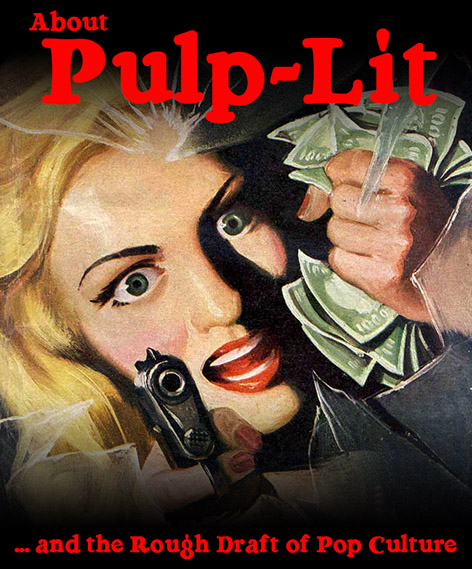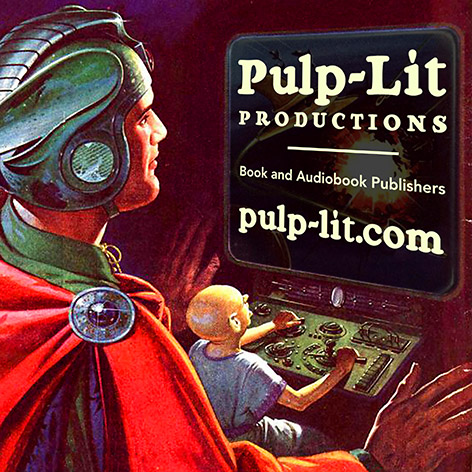A trans-media publishing house for people who love the pre-war pulps:
Pulp-Lit Productions is a trans-media publishing firm based in Corvallis, Oregon, U.S.A., which specializes in annotated editions of classic novels and omnibus collections from the pre-war pulp era — roughly 1910 to 1941. Pulp-Lit Productions takes an “audio-first” approach to its projects, engineering them for maximum utility for audiobook listeners, but also produces hardcover, paperback, Kindle and ePub editions of its titles..
The Pulp-Lit Manifesto:
If newspapers are the "rough draft of history" ... then surely those old-time pulp writers were creating the rough draft of pop culture, no?
Pulp-Lit Productions had its genesis in the summer of 2014. Its goal: To seek out the hidden gems of pre-war pulp fiction, to explore the things they can tell us about the society that created them and about the people who labored on them; and, of course, to enjoy some of the most unpretentiously awesome literature the world has ever known.
Because pulp fiction is a special form of art. It’s a “low art,” which means it didn’t have the luxury of being something that people like to pose with. It had to deliver. It had to support itself by what it did for people, and that gives it an edge of realness over the high-art forms — paintings by Matisse, novels by Joyce, that kind of thing.
But for a long-form storyteller — a novelist, a screenwriter, an epic poet, whatever — the best part is the speed with which the pulps were rushed to press, and the relative carelessness with which they were edited. That means a writer can find all kinds of useful stuff in them — examples of daring brilliance, of thumbfingered bodgery, and of everything in between — that would never have survived the editing process at a book publishing house. They are a rich source both of shining examples and of horrible warnings, as Catherine Aird would say. They are ... like all of us.
Literature is like any other art. We want it to do something for us — and the pulp classics did it. We can learn much and get great enjoyment by noticing and unpacking how they did. We can also gain great insights into the world our grandparents lived in from studying the stories they loved.
So what if it's trashy?
There is certainly some trash in pulp-land, and even much of the good pulp is very rough; after all, you could not make money writing pulp stories if you took the time to really polish your drafts. But if you love a good rock-'em-sock-'em, or sappy romance, or goofy space opera — quit apologizing, friend, and settle down and take your shoes off. Here you are among kindred spirits.
[ entry page] [ catalog ] [ about pulp-lit ] [ to contact us: info @ pulp-lit com ]
©2014-2017 by Pulp-Lit Productions. Copyright assertion does not apply to assets that are in the public domain or are used by permission.

